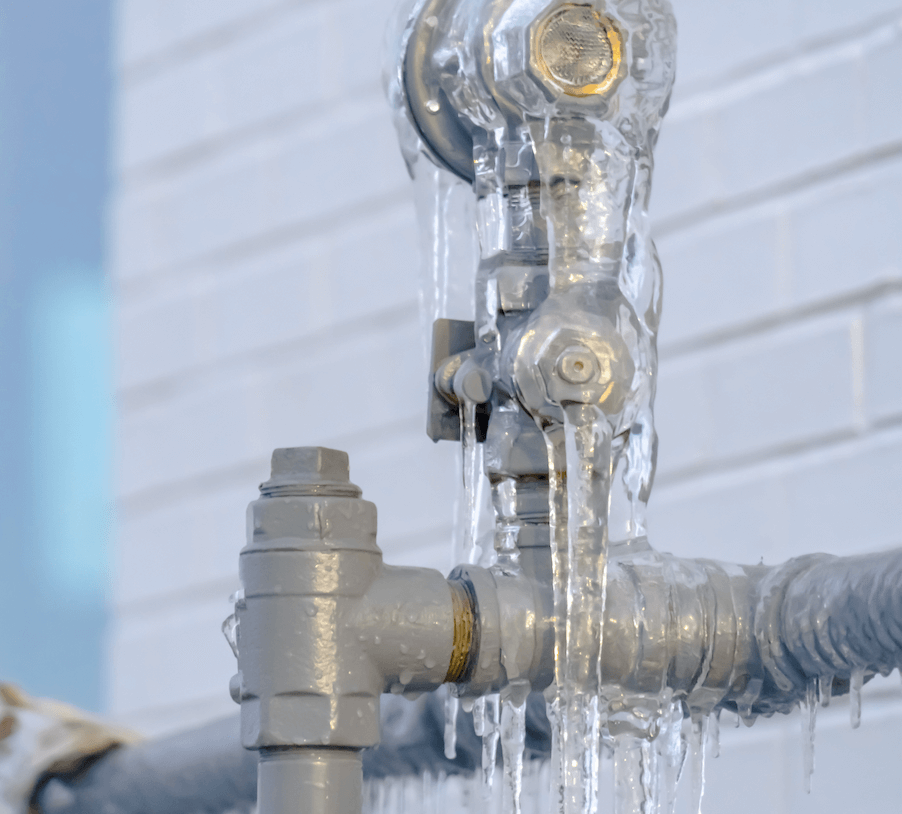Crucial Advice to Prevent Frozen Pipes in Cold Weather
Crucial Advice to Prevent Frozen Pipes in Cold Weather
Blog Article
Any individual maintains his or her own opinion involving How to prepare your home plumbing for winter weather.

Cold weather can damage your pipes, specifically by freezing pipes. Right here's exactly how to prevent it from happening and what to do if it does.
Introduction
As temperatures drop, the threat of icy pipes increases, possibly bring about expensive fixings and water damage. Recognizing exactly how to avoid frozen pipes is vital for property owners in cool environments.
Understanding Frozen Pipelines
What creates pipes to freeze?
Pipelines ice up when exposed to temperature levels listed below 32 ° F (0 ° C) for extended durations. As water inside the pipes freezes, it expands, taxing the pipeline walls and potentially creating them to burst.
Risks and damages
Icy pipes can result in water system disturbances, home damages, and costly repairs. Burst pipes can flooding homes and cause comprehensive architectural damage.
Indicators of Frozen Water Lines
Identifying icy pipes early can avoid them from breaking.
Just how to identify frozen pipes
Try to find lowered water flow from taps, unusual smells or noises from pipelines, and noticeable frost on subjected pipes.
Prevention Tips
Shielding at risk pipes
Wrap pipelines in insulation sleeves or make use of heat tape to safeguard them from freezing temperature levels. Concentrate on pipelines in unheated or external locations of the home.
Home heating methods
Keep indoor rooms adequately heated, especially locations with pipes. Open up cupboard doors to enable cozy air to circulate around pipelines under sinks.
Shielding Exterior Plumbing
Garden tubes and outdoor faucets
Disconnect and drain garden pipes prior to winter. Install frost-proof faucets or cover exterior taps with shielded caps.
What to Do If Your Pipelines Freeze
Immediate activities to take
If you believe frozen pipelines, keep taps open to soothe pressure as the ice thaws. Utilize a hairdryer or towels taken in hot water to thaw pipelines gradually.
Long-Term Solutions
Structural adjustments
Take into consideration rerouting pipes away from exterior wall surfaces or unheated locations. Include extra insulation to attics, cellars, and crawl spaces.
Updating insulation
Buy high-quality insulation for pipes, attics, and walls. Appropriate insulation assists preserve constant temperature levels and reduces the threat of icy pipelines.
Final thought
Stopping icy pipes requires proactive measures and fast feedbacks. By recognizing the reasons, indications, and safety nets, home owners can safeguard their pipes during winter.
Helpful Tips to Prevent Frozen Pipes this Winter
UNDERSTANDING THE BASICS: WHY PIPES FREEZE AND WHY IT’S A PROBLEM
Water freezing inside pipes is common during the winter months, but understanding why pipes freeze, and the potential problems it can cause is crucial in preventing such incidents. This section will delve into the basics of why pipes freeze and the associated problems that may arise.
THE SCIENCE BEHIND FROZEN PIPES
When water reaches freezing temperatures, it undergoes a physical transformation and solidifies into ice. This expansion of water as it freezes is the primary reason pipes can burst. As the water inside the pipe freezes, it expands, creating immense pressure on the walls. If the pressure becomes too great, the pipe can crack or rupture, leading to leaks and water damage.
FACTORS THAT CONTRIBUTE TO PIPE FREEZING
Low Temperatures: Extremely cold weather, especially below freezing, increases the risk of pipes freezing. Uninsulated or Poorly Insulated Pipes: Pipes located in unheated areas, such as basements, crawl spaces, or attics, are more prone to freezing. Insufficient insulation or lack of insulation altogether exacerbates the problem. Exterior Wall Exposure: Pipes running along exterior walls are susceptible to freezing as they encounter colder temperatures outside. Lack of Heating or Temperature Regulation: Inadequate heating or inconsistent temperature control in your home can contribute to frozen pipes. PROBLEMS CAUSED BY FROZEN PIPES
- Pipe Bursting: As mentioned earlier, the expansion of water as it freezes can cause pipes to burst, resulting in significant water damage.
- Water Damage: When pipes burst, it can lead to flooding and water damage to your property, including walls, ceilings, flooring, and personal belongings.
- Structural Damage: Prolonged exposure to water from burst pipes can compromise the structural integrity of your home, leading to costly repairs.
- Mold and Mildew Growth: Excess moisture from water damage can create a favorable environment for mold and mildew growth, posing health risks to occupants.
- Disrupted Water Supply: Frozen pipes can also result in a complete or partial loss of water supply until the issue is resolved.
WHY CERTAIN PIPES ARE MORE PRONE TO FREEZING
- Location: Pipes located in unheated or poorly insulated areas, such as basements, crawl spaces, attics, or exterior walls, are at higher risk of freezing.
- Exterior Pipes: Outdoor pipes, such as those used for irrigation or exposed plumbing, are particularly vulnerable to freezing as they are directly exposed to the elements.
- Supply Lines: Pipes that carry water from the main water supply into your home, including the main water line, are critical to protect as freezing in these lines can affect your entire plumbing system.
- Underground Pipes: Pipes buried underground, such as those connected to sprinkler systems or outdoor faucets, can be susceptible to freezing if not properly insulated.
https://busybusy.com/blog/helpful-tips-to-prevent-frozen-pipes-this-winter/

I was made aware of that article on How to Prevent Your Pipes From Freezing from a pal on another web page. So long as you enjoyed reading our blog posting if you please remember to pass it around. I am grateful for being here. Don't hesitate to come visit our site back soon.
About This Report this page